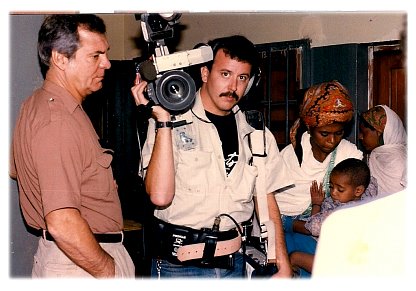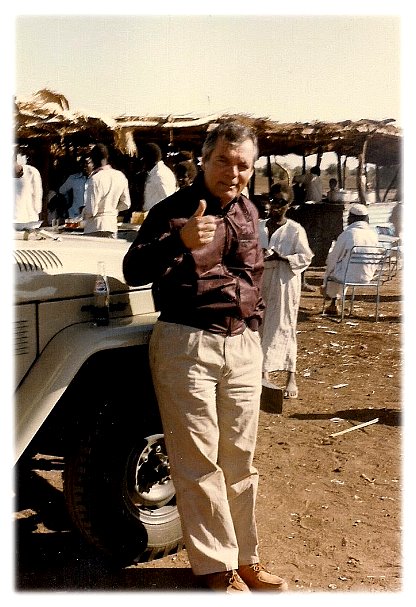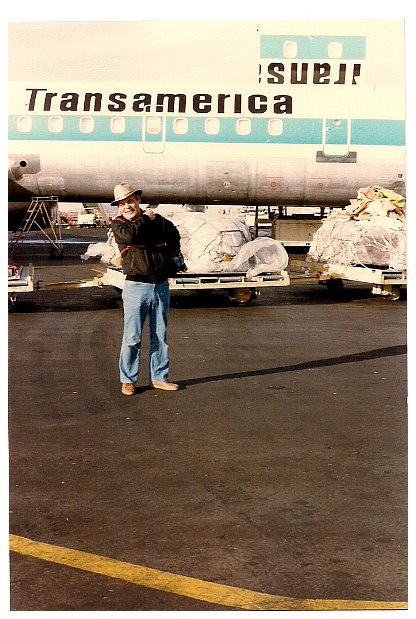WHITE HOUSE STATEMENT
Official State Department
Correspondence
From the State
Department's Official Website
WHITE HOUSE
STATEMENT, NOV. 1,1984
President Reagan today approved further
measures the United States is taking in response to the growing food emergency
in Africa.
The President approved food
assistance to three more African countries: Kenya, 120,000 metric tons of food,
valued at $25.5 million; Mozambique, 73,000 metric tons, valued at $12.7
million; Mali, 15,000 metric tons, valued at $6.9 million.
These new approvals total
208,000 metric tons valued at $45.1 million. This brings the total
drought-related food assistance obligated to Africa in fiscal year 1985 (since
October 1, 1984) to $131 million for 15 African countries. Niger and Chad are
also under active consideration for food assistance.
M. Peter McPherson, Administrator
of the Agency for International Development (AID), will meet with Ethiopian
Commissioner Dawit Walde Giorgis, Director, Ethiopian Relief Agency, today and
tomorrow in Washington to discuss efforts of the Ethiopian and U.S. Governments
to deal with the drought in that country. Subject to discussions with the
Ethiopian Government, the President has authorized AID to contract with
TransAmerica, a U.S. based airline for two L-lOO cargo planes to
airlift emergency food supplies to drought \ u tims within Ethiopia. The planes
can arrive in Ethiopia on November 4th and 5th and remain for at least 60 days
at a cost of approximately $2.4 million.
In fiscal year 1984, the
United States provided more than 500,000 metric tons of emergency food to more than
25 African countries. The value ft the food exceeded $173 million for fiscal
year 1984.
The President is committed
to addressing the drought emergency on an Africa-wide basis. In Ethiopia, the
problem has largely been on the Ethiopian side, reflected in an inability or
unwillingness to get the goods to the people i need. There are some signs of
improvement now.
We note that the Soviet
Union has announced that it will provide some limited transportation assistance
to help deliver food in Ethiopia. We hope this means a basic change in Soviet
policy. Their record has been one of overwhelmingly military-oriented programs
in the Third World, with little assistance in terms of aid and development.
:.(
'Text from Weekly
compilation of Presidential Documents of Nov. 5, 1984.
This was the same year the
Soviet Union boycotted the Olympics in Los Angeles, where I worked.
|
|
|
1 of 1 |
|







